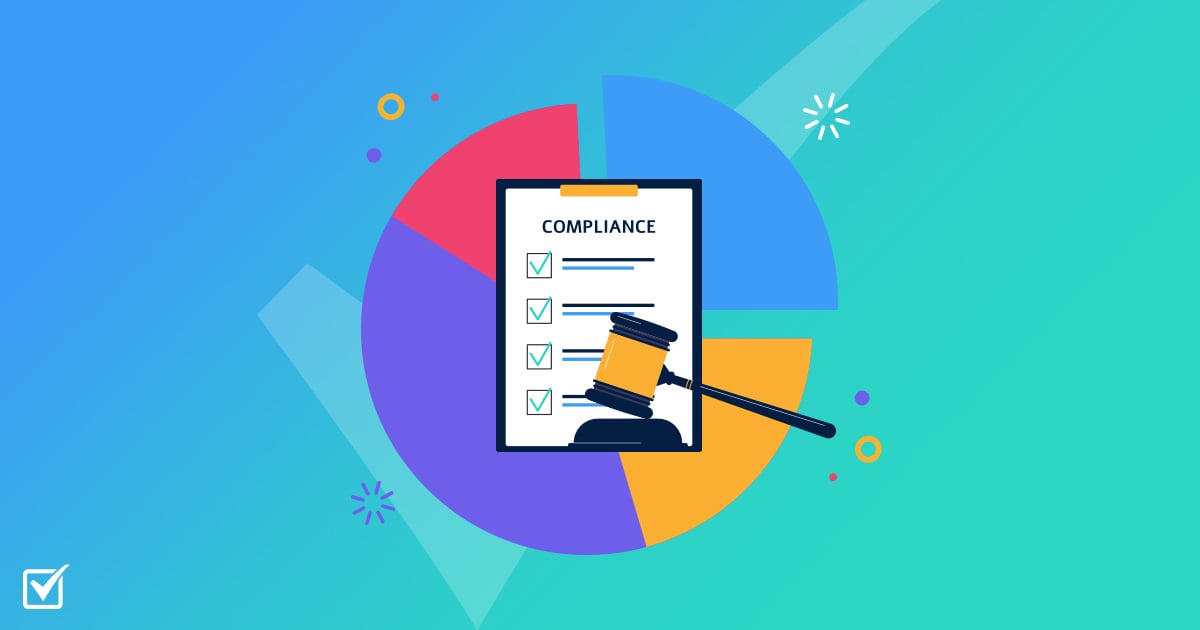What are the Laws and Regulations in Relation to Grant Compliance?
Proper grant management and compliance are essential to ensuring eligibility in grant programs. Once the funding has been approved, projects funded by grants should initiate basic operations immediately to allow the lead time necessary to document the usage of the funds, according to the requirements of the agency providing the funds.
In addition to the funding agency’s guidelines, there are also standards that are set by other government departments or agencies, as well as funding and oversight boards, and even the documentation and bookkeeping requirements of your organization. You may be wondering exactly what are the laws and regulations in relation to grant compliance, well we’re going to take a look. Here’s a broad overview of grants management and grant compliance regulations.
Post-Award Processes & Procedures
Once a grant proposal has been awarded funding by a funding agency, the post-award process begins. There are often time-sensitive actions that need to be taken with another institution that may be involved in handling the award. In some cases, the funding agency may also have one of the grant-officers reach out for more information, such as budgetary revisions or clarifications. The primary goal of the officer will be to work with the grant recipient to negotiate an award from the agency.
After the grant award has been agreed upon by the officer of the funding agency, grant contracts will generally be produced to ensure the terms of the grant are complied with, and that the funds are managed as outlined by the funding agency's requirements. The grant contract will also frequently affirm that the funds will be used in alignment with all applicable federal regulations. The grants office for your facility will generally retain a copy of the executed contract.

Establishing A Grant Budget
With any project, the implementation stage is generally the longest stage in the overall grant lifecycle. Once the notice of award has been received, along with the executed contract and the budget for the project, the internal budget account can be created. This account will be used to maintain compliance and reporting requirements for the project and will be the account that funds purchases needed for the project, as well as personnel costs and funds transfers. The established budget will need to be reviewed by the project’s director for compliance and visibility.

Compliance
Grant compliance has become incredibly important. The federal regulations in place have expanded to allow for the monitoring and evaluation of the outcomes of projects funded with grant money, along with increased scrutiny of the risk management considerations, transparency, and accountability.
All of the corresponding regulations and legislation are found in the Code of Federal Regulations, or CFR, under Title 2 Part 200 the OMB Uniform Administrative Requirements, Cost Principles, and Audit Requirements for Federal Awards. The sections are as follows:
- Statutory and National Policy Requirements
- Performance Measurement
- Financial Management
- Internal Controls
- Bonds
- Payment
- Cost-Sharing Or Matching
- Program Income
- Revision Of Budget And Program Plans
- Period Of Performance
- Insurance Coverage
- Real Property
- Federally-Owned And Exempt Property
- Equipment
- Supplies
- Intangible Property
- Property Trust Relationship
- Procurements By States
- General Procurement Standards
- Competition
- Methods Of Procurement To Be Followed
- Contracting With:
- Small Businesses
- Minority Businesses
- Women’s Business Enterprises
- Labor Surplus Area Firms
- Procurement Of Recovered Materials
- Contract Cost And Price
- Federal Awarding Agency or pass-through entity review
- Bonding Requirements
- Contract Provisions
- Monitoring And Reporting Program Performance
- Financial Reporting
- Reporting On Real Property
- Subrecipient And Contractor Determinations
- Requirements For Pass-Through Entities
- Fixed Amount Subawards
- Retention Requirements For Records
- Requests For Transfer Of Records
- Methods For Collections, Transmission, and Storage of Information
- Access to Records
- Restrictions On Public Access To Records
- Remedies For Noncompliance
- Termination
- Notification of Termination
- Opportunities to Object, Hearings, and Appeals
- Effects of Suspension and Termination
- Closeout
- Post-Closeout
- Post-Closeout Adjustments and Continuing Responsibilities
- Collection of Amounts Due
Grant Closeout Compliance
One of the major compliance considerations is the provisions set forth in 2 CFR 200.333. This deals with the requirements for storing financing records and other products of bookkeeping. This sets the rules for record retention and outlines that all grant files must be stored for at least 3 years following the final expenditure report, or for awards that are renewed quarterly or annually, from the date of submission of the quarterly or annual financial report, respectively.
Audit Readiness
With compliance being the cornerstone of successful grant management, being in full compliance means perpetually being ready for a potential audit. Proper grant management and seamless compliance can make audit readiness simple, though it’s important to remember that effective funds management means using funds in accordance with all local, state, federal, and funding agency guidelines.
Using proper fiscal procedures and accounting best practices will help ensure that common errors are not overlooked, but there should also be efforts made to maintain audit readiness on an ongoing basis. This includes:
- Administrative controls such as policies and procedures are followed as part of normal business practices.
- Accounting controls are in place to help protect the finances and financial records of the organizations handling the grant funds.
- Full compliance with the requirements of the grant program, state, and federal entities including full adherence to legislation and regulation pertaining to the disbursement of grant funds, accurate reporting of financial status, cost allocations, and more.
- Records should be properly and accurately to support the grant proposal and should be retained in safe storage for the legally required period.
- Internal audits may be needed periodically to ensure third-party audit readiness.
Handling Grant Management & Compliance Can Be Complex
While grant management may seem like more than enough to worry about while running a grant project, the usage and administration also need to be compliant with appropriate agencies and regulatory bodies. This can be a challenge not only for the projects that receive grant funds but the institutions with whom they work, as well as for funding agencies themselves. SmarterSelect can help simplify operations at all stages by making grant management easy and efficient. This lets you concentrate on staying compliant, without losing focus on management tasks. Click here to get a free demo today!
FAQ's
1. What is the deifinition of grant compliance?
Grant compliance is the process of ensuring your grant money is properly used and reported to the government. Each type of program has its own standards, including rules and regulations that cover the handling of documentation, data reporting, impact, and progress.
2. What do grant compliance laws typically include requirements for?
Grant compliance laws vary depending on the type of grant. However, they typically include requirements for the following:
- Proper documentation
- Timely reporting
- Avoiding conflict of interest
- Adherence to the budget.



